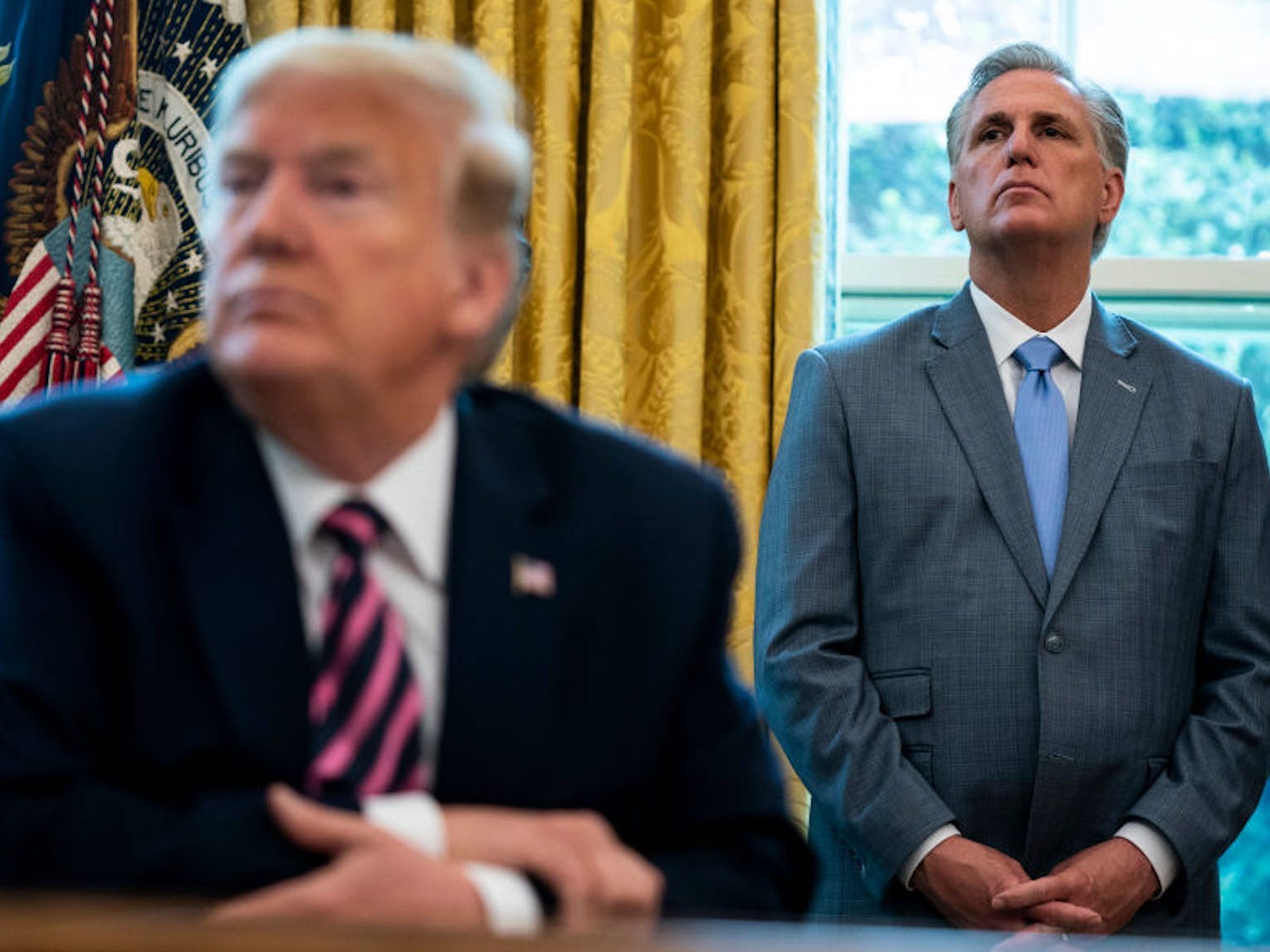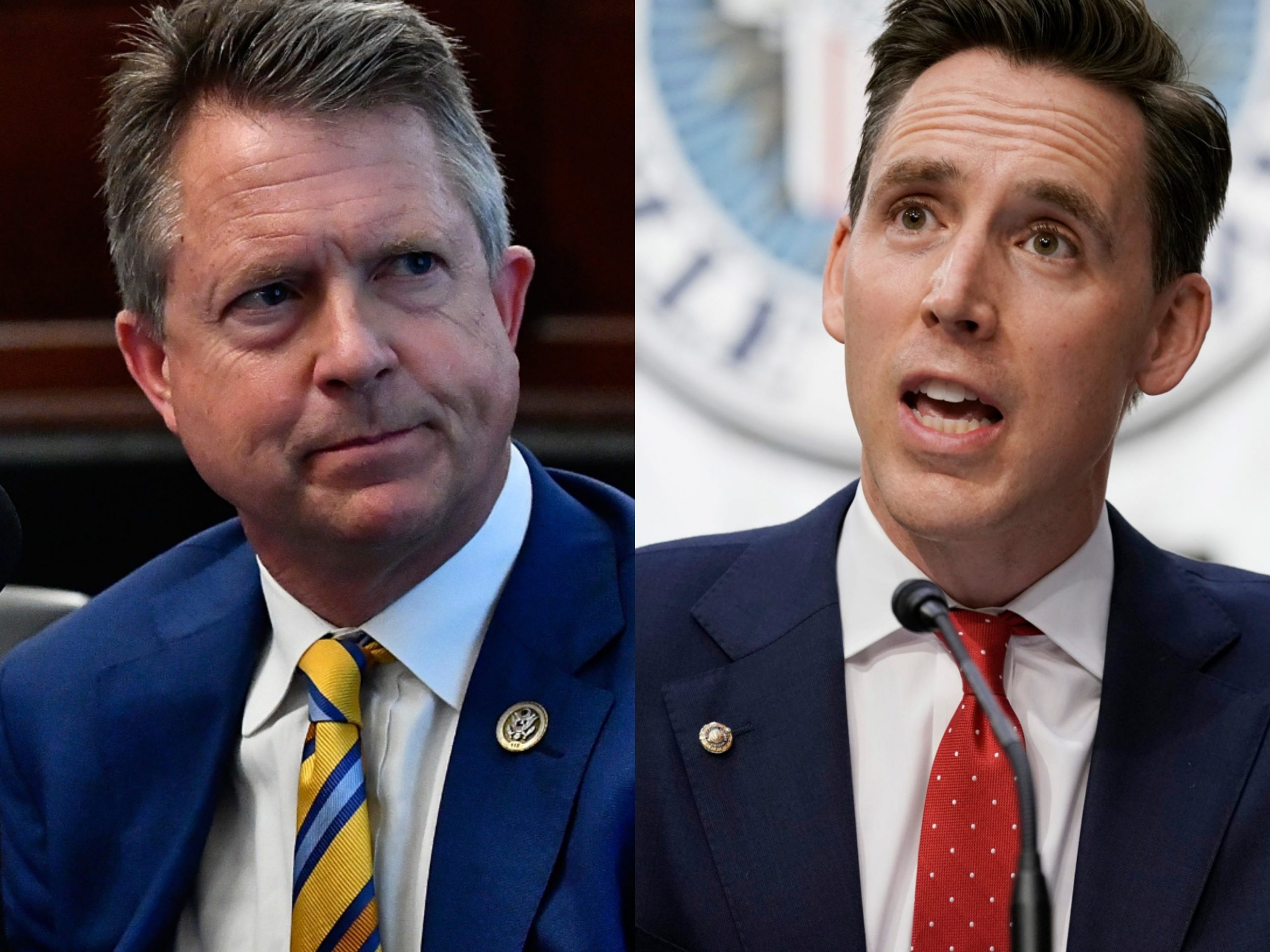
Anna Moneymaker/The New York Times/POOL/Getty Images
- Wall Street gave $4.8 million to Rep. Kevin McCarthy in 2019 and 2020, per an AFR report.
- McCarthy was one of 147 lawmakers who voted against certifying Joe Biden as president.
- These lawmakers in total received $43.5 million from the financial-services industry in that cycle, AFR says.
- See more stories on Insider's business page.
Wall Street gave $43.5 million during the 2019-2020 election cycle to the 147 Republican lawmakers who later voted against Joe Biden's certification as president, according to a new report by Americans for Financial Reform (AFR).
Financial-services firms and trade associations, as well as their employees, donated $4.9 million to the eight senators who moved against the election results in January. They donated $38.5 million to the 139 representatives who formally objected to Biden's certification, the AFR found.
Of those who voted to overturn then-president Donald Trump's election loss, House Minority Leader Kevin McCarthy received the most from Wall Street in the 2019-20 cycle at $4.8 million, per the report.
He was followed by House Minority Whip Steve Scalise at $3.7 million, and Missouri Rep. Blaine Luetkemeyer at $1.8 million.
In comparison, Texas Sen. Ted Cruz got $670,470, and Missouri Sen. Josh Hawley received $275,400.
AFR based its analysis on contributions reported by both financial-services companies and trade associations and individual employees between January 1, 2019 and December 31, 2020.
Read more: The Great GOP Migration: How South Florida became a shadow capital for Trump conservatives
Its report also noted that the American Bankers Association appeared at or near the top of the lists of top givers of 13 members of the House and one senator. In total, the trade group donated $1.3 million to the group of lawmakers - making it their second-biggest PAC donor.
After a mob of Trump supporters stormed the US Capitol on January 6 to try and prevent Congress from certifying Biden's win, many top US companies scrambled to cut ties with the lawmakers who voted against the results.
Dozen of companies, including Walmart, Amazon, Morgan Stanley, and AT&T, said they would stop giving donations to these specific lawmakers, and Hallmark even asked Hawley and Kansas Sen. Roger Marshall to return its donations.

Larry French/Getty Images for SiriusXM, Ken Cedeno-Pool/Getty Images
Other companies said they would pause all political donations, to both Republicans and Democrats. This was the option favored by most financial-services companies, including JPMorgan Chase, Deloitte, Wells Fargo, and Goldman Sachs.
The companies that halted political donations are unlikely to lift this ban any time soon, Jeffrey Sonnenfeld, who convenes meetings with top US business leaders as founder of Yale's Chief Executive Leadership Institute, told Axios in March.
Though this isn't a particularly pressing time in the election cycle, he said this pause could still affect congressional leaders in the House, some of whom are already fundraising for the 2022 elections.
Some companies have faced political "blowback" over their stance, "but CEOs are used to it, they don't care," Sonnenfeld said.
"Cutting funding hits these politicians where it hurts," and is "probably the more profound of the actions that can be taken" by companies against these lawmakers, Donald Hambrick, a professor of management at Smeal College of Business, previously told Insider.
AFR's report also suggested that Wall Street spent a record $2.9 billion on political contributions and lobbying across 2019 and 2020. It said that Bloomberg LP spent the most cash, while Georgia Sen. Jon Ossoff received more money than any other current member of Congress.